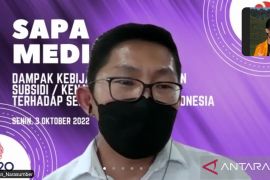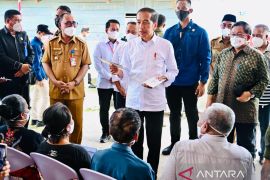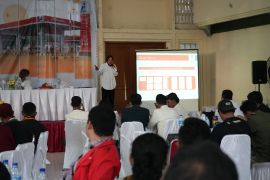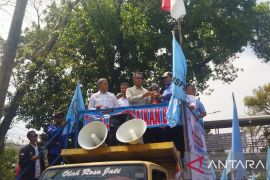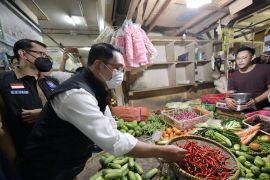The fuel price increase will also not significantly reduce people`s purchasing power if the government`s program to compensate the poor for the fuel price hike runs effectively.Jakarta (ANTARA News) - Liquidity in the money market will not be affected too significantly and will still be controllable if the government raises the price of subsidized fuel by Rp2,500 a liter, an economist said.
With a fuel price hike of Rp2,500 a liter, Bank Indonesia will still keep its benchmark interest rate at 7.5 percent, Tony Prasentiantono of Yogyakarta-based Gadjah Mada University (UGM) stated here on Wednesday.
"The Rp2,500 fuel price hike will not send the inflation rate soaring to more than 8 percent," he affirmed.
The economist added that the fuel price increase will also not significantly reduce peoples purchasing power if the governments program to compensate the poor for the fuel price hike runs effectively.
"If the price of premium-grade gasoline is raised by Rp2,500 to Rp9,000 a liter, people still can afford to buy it," Prasentiantono noted.
Furthermore, if the subsidized fuel prices are raised before 2015, he predicted that the full-year inflation rate will reach 7 to 7.5 percent.
The fuel price hike will only lead to a "one-shot inflation." This means that if the fuel prices are hiked before 2015, the inflation rate in 2015 will stand at around 5 percent, he explained.
Based on various assumptions, the Indonesian economy is expected to grow by 5.6 percent next year, which is lower than the government-set target of 5.8 percent in the 2015 state budget, the economist said.
"We will most likely miss the target, but the state budget will remain sound," Prasentiantono remarked.
He also predicted that the fuel price hike, which will be announced before the end of this year, will have no significant impact on the countrys current account deficit.
The deficit will fall to US$25 billion from the current US$26 billion, he assured.
To improve the current account deficit, Prasentiantono suggested that the public should reduce their dependence on fuel oil. (*)
Editor: Heru Purwanto
Copyright © ANTARA 2014

